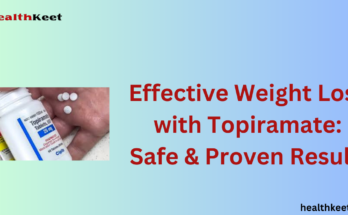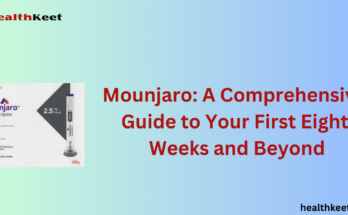Managing your lipid levels is crucial for a healthy life for Managing Lipid. Lipids like cholesterol and triglycerides are important for the body, but excess levels can lead to serious health problems like heart disease and stroke. Don’t worry though, there are effective ways to lower them and improve your overall well-being. Let’s explore some practical tips to manage your cholesterol and triglycerides levels:
1. Get Regular Exercise:
Physical activity plays a vital role in managing lipids and maintaining overall health. Regular exercise has numerous benefits for Managing Lipid, and when it comes to managing cholesterol and triglycerides, it can make a significant difference.
![]()
The American Heart Association recommends aiming for at least 150 minutes of moderate-intensity aerobic exercise or 75 minutes of vigorous-intensity exercise each week. This translates to about 30 minutes a day, five days a week, for moderate-intensity exercise or 25 minutes a day, three days a week, for vigorous-intensity exercise.
Engging in regular physical activity can positively impact your lipid profile in several ways:
- Increasing “Good” Cholesterol (HDL): High-density lipoprotein (HDL) cholesterol is often referred to as the “good” cholesterol because it helps remove excess cholesterol from the arteries and transports it to the liver for excretion. Regular exercise has been shown to increase HDL levels, which contributes to a healthier cardiovascular system for Managing Lipid.
- Decreasing “Bad” Cholesterol (LDL) and Triglycerides: Low-density lipoprotein (LDL) cholesterol and triglycerides are referred to as the “bad” lipids because elevated levels can lead to the buildup of plaque Regular physical activity helps lower LDL cholesterol and triglyceride levels, reducing the risk of atherosclerosis and related complications.
2. Regular Check-ups:
Don’t forget to visit your healthcare provider regularly to monitor your lipid levels. The lipid profile test measures different components, including total cholesterol, LDL cholesterol, HDL cholesterol, and triglycerides. Regular check-ups will help you track your progress, identify any potential issues, and make necessary adjustments to your healthcare plan.

Regularly monitoring your lipid profile through check-ups is essential for several reasons:
- Tracking Progress: By comparing your lipid levels over time, you and your healthcare provider can monitor the effectiveness of lifestyle changes and any prescribed treatments in managing your lipids.
- Early Identification of Issues: Regular lipid profile testing allows your doctor to detect any abnormalities early on, enabling prompt intervention if needed.
- Tailoring Your Healthcare Plan: Based on your lipid profile results, your healthcare provider can make necessary adjustments to your treatment plan, whether it involves lifestyle changes, medications, or other interventions.
- Assessing Overall Heart Health: Lipid levels provide valuable insights into your cardiovascular health and can serve as indicators of your risk for heart disease and related conditions.
3. Eat a Balanced Diet:
The food you eat plays a major role in lipid management. Emphasize the importance of a well-rounded diet, rich in an abundance of fruits, whole grains, and proteins. Cut back on saturated and trans fats found in processed and fried foods. Instead, opt for healthier cooking methods like baking, grilling, or steaming. Include foods rich in Omega-3 fatty acids, such as fatty fish, flaxseeds, and walnuts, to help lower triglycerides.

Let’s explore some practical tips to make the most out of your dietary choices for optimal lipid management:
- Whole Grains are Essential: Make whole grains a staple in your meals, such as brown rice, quinoa, oats, and whole wheat products. Whole grains contain soluble fibre, which can help lower LDL cholesterol levels when consumed as part of a balanced diet.
- Choose Lean Proteins: Take regularly lean protein sources like fish and These alternatives are lower in saturated fat compared to red meat and can support heart health.
- Cut Back on Unhealthy Fats: Minimise the consumption of saturated and trans fats, which can raise LDL cholesterol levels Managing Lipid. Limit your intake of processed and fried foods, as they are often high in these unhealthy fats.
- Healthy Cooking Methods: Instead of deep-frying or pan-frying, consider healthier cooking methods like baking, grilling, or steaming. These techniques preserve the nutritional value of the food without adding excess fats.
4. Manage Stress for Managing Lipid:
Chronic stress can indirectly affect your lipid levels by leading to unhealthy behaviours. Find healthy ways to manage stress Managing Lipid, such as mindfulness, yoga, meditation, or engaging in enjoyable hobbies Managing Lipid.

To safeguard your heart health and effectively manage stress, it’s crucial to adopt healthy coping strategies. Here are some beneficial approaches to managing stress and promoting optimal lipid levels:
- Mindfulness and Meditation: Practising mindfulness and meditation can help reduce stress and promote relaxation. Taking a few minutes each day to focus on your breath, thoughts, and emotions can provide a sense of calm and perspective. Meditation has been associated with improved cholesterol levels and overall heart health Managing Lipid.
- Pursue Enjoyable Hobbies: Engaging in hobbies you enjoy can be a great way to unwind and divert your mind from stressors. Whether it’s painting, gardening, playing a musical instrument, or any other leisure activity, these enjoyable pursuits can significantly reduce stress and positively impact your mental well-being.
- Connect with Others: Forge meaningful connections with others as social support proves instrumental in effectively managing stress. Spending time with loved ones, talking about your feelings, and sharing experiences can provide emotional relief. Building and maintaining strong social connections can create a sense of belonging and help buffer the effects of stress Managing Lipid.
- Prioritise Sleep: Adequate sleep is vital for both stress management and lipid health. Poor sleep patterns and insufficient rest can worsen stress levels and negatively affect cholesterol and triglyceride levels.
5. Consider Medication if Necessary:

Lifestyle changes might not be enough in some cases. If your lipid levels remain high despite a healthy lifestyle, your doctor may prescribe medication to help manage them Managing Lipid. Make sure to consistently adhere to your doctor’s guidance and faithfully take medications as directed.
Conclusion:
Lowering cholesterol and triglycerides is essential to reduce the risk of heart disease and maintain good health. Remember to consult with your dietician before making significant changes to your diet or exercise routine. If needed, seek guidance from a cardiologist for personalised advice based on your individual health needs.



















